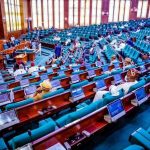The World Bank has set aside $750 million stimulus intervention to assist the 36 states of Nigeria to boost internally generated revenue through tax relief package aimed at mitigating the unending toll of the COVID-19 pandemic on businesses and individual taxpayers.
The stimulus package is also aimed to ensure speedy recovery of states’ economies.
This was part of the outcomes of a virtual meeting with governors of the 36 states of the federation at the weekend, where it was observed that state governments are currently experiencing liquidity crisis with limited capacity to borrow.
It was gathered that efforts were being incentivised by a new Disbursement Linked Indicator (DLI) under the Federal Ministry of Finance, Budget and National Planning (FMFBNP), World Bank’s $750 million States Fiscal Transparency, Accountability and Sustainability (SFTAS) Programme for Results.
Eligible states will be rewarded with $2.5 million each in performance-based grants if the measures, which include a tax compliance relief programme for individual taxpayers and businesses to mitigate the COVID-19 impacts, are implemented by September 30, 2020.
Addressing the participants, the programme manager, Nigerian Governors’ Forum (NGF) SFTAS Technical Assistance Project, Olanrewaju Ajogbasile, stated that the Secretariat, through the support of the FMFBNP and the World Bank, was available to provide technical advisory on the domestication of necessary reforms to meet the DLIs and more broadly, fiscal sustainability.
“It has become imperative that they find a balance between granting tax reliefs and maintaining revenues at a sustainable level. The extent to which government revenues will be impacted by these reliefs will depend on the type of relief that they grant and their ability to raise their tax efforts simultaneously, including offering incentives for greater tax compliance,” Ajogbasile said.
Ajogbasile also disclosed that while some states have followed strictly the requirements of granting extension for filing 2019 annual returns and waiver for penalties and interests for businesses and individual taxpayers, others have gone further to waive other taxes, fees and levies for a specified period of time.
The relief programmes which were initiated in states across board have focused on five main tax activities, including extension of filing and payment dates, tax moratoriums, waivers or reduction of penalties and interests over the extension period.
While some states are offering rebates or discounts on taxes paid within a specific period, others are allowing the payment of taxes, fees and levies among others in instalment.
In the same vein, states’ tax offices are now enabling filing and the issuance of tax clearance certificates electronically (online).
“All these were the outcomes of a virtual meeting held on Friday 14th August 2020, under the States’ Fiscal Transparency, Accountability and Sustainability (SFTAS) Programme for Results, jointly organised by the World Bank and the Nigeria Governors’ Forum (NGF), a programme midwifed by the Federal Ministry of Finance, Budget and National Planning (FMFBNP),” Ajogbasile said.
The SFTAS experts at the webinar concluded that such waivers for businesses are no longer optional, but have become an essential element of governments’ stimulus-targeted packages to facilitate recovery for businesses who face a liquidity crisis, and individuals whose livelihoods have been adversely impacted by the COVID-19 crisis.
But there are criteria to be met if a state is to receive the $2.5m. These are that state announcements should be signed by the Commissioner of Finance or the Executive Chairman of the State Internal Revenue Service and published on state websites and in national dailies to ensure widespread awareness among taxpayers.
Furthermore, the state government should issue to their tax officials and collecting agents, guidelines for the implementation of the reliefs to ensure consistent execution by all and sundry.
The virtual meeting was attended by 125 participants from the 36 States of the Federation including State Commissioners of Finance and Executive Chairpersons of State Internal Revenue Services.








